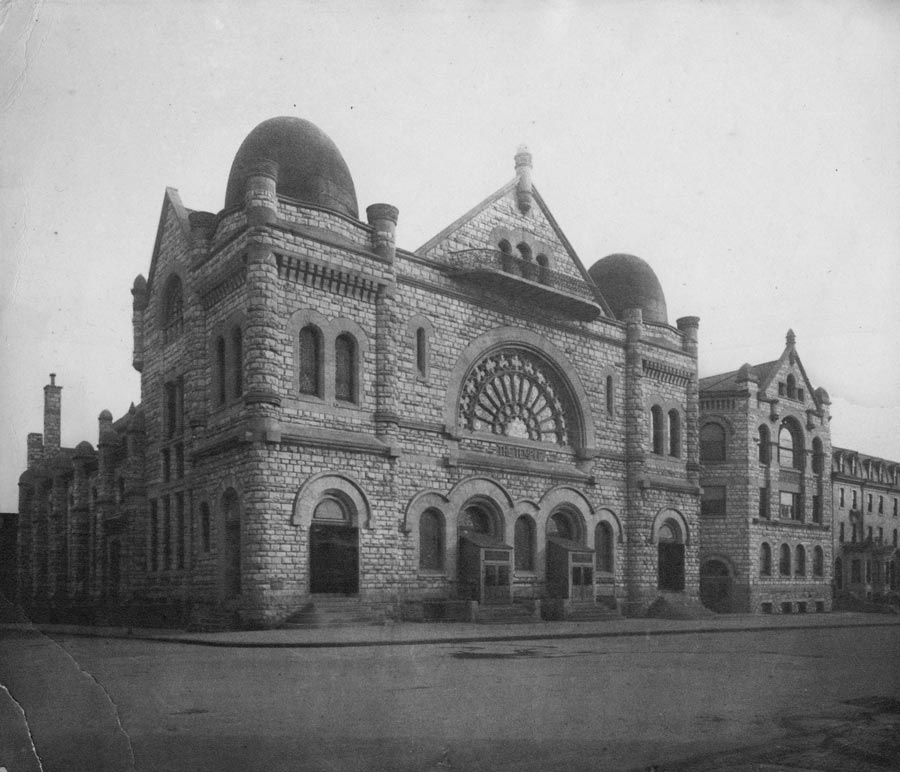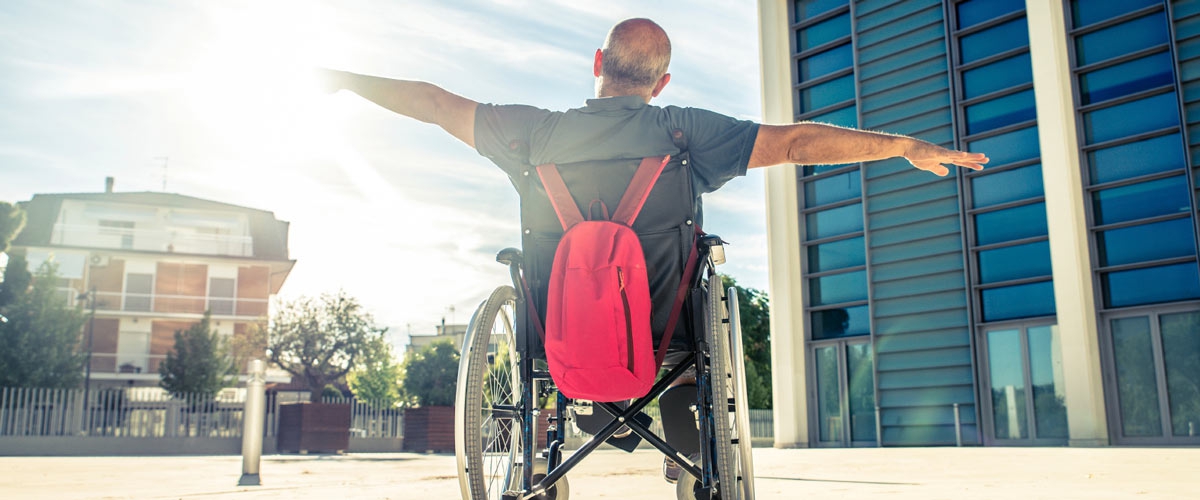The views expressed in our content reflect individual perspectives and do not represent the authoritative views of the Baha'i Faith.
Nature is without volition and acts perforce, whereas man possesses a mighty will. … Man acquires divine virtues; nature is denied them. Man can voluntarily discontinue vices; nature has no power to modify the influence of its instincts. Altogether it is evident that man is more noble and superior, that in him there is an ideal power surpassing nature. He has consciousness, volition, memory, intelligent power, divine attributes and virtues of which nature is completely deprived and bereft; therefore, man is higher and nobler by reason of the ideal and heavenly force latent and manifest in him. – Abdu’l-Baha, The Promulgation of Universal Peace, p. 178.
This passage is from a talk given by Abdu’l-Baha on June 9, 1912 at what was once called “Baptist Temple,” located at Broad and Berks Streets (now North Broad Street between Montgomery and Norris) in Philadelphia, Pennsylvania. Starting in 2007, this “white elephant” was renovated (at a cost of $30 million) as today’s Temple Performing Arts Center.
Imagine the crowd that day: When it opened on March 1, 1891, the Baptist Temple was the megachurch of Victorian Philadelphia. With a seating capacity of nearly 4,600, it was the largest Protestant church in the United States. Although the Baptist Temple fell into disrepair, Abdu’l-Baha’s words live on. They have taken on a life of their own.

Baptist Temple visited by Abdu’l-Baha
According to Abdul-Baha, each human being, including you and I, possesses “divine attributes and virtues.” He described these qualities as “the ideal and heavenly force latent” in each of us: “consciousness, volition, memory, intelligent power” — and “volition.” Let’s talk about volition as an “ideal power.”
Volition is will. “Will” (Mashīyyat, in Persian) is the name of the tenth Baha’i month in the 19-month Baha’i Calendar. The month of Will lasts from late September to mid-October each year.
Here’s one dictionary definition of “will:” “the will to succeed: determination, will-power, strength of character, resolution, resolve, resoluteness, single-mindedness, purposefulness, drive, commitment, dedication, doggedness, tenacity, tenaciousness, staying power.”
Volition is decision. Will can be strong or weak. That’s why we need “will-power.” Will-power translates our intentions into actions, our thoughts into deeds, our goals into accomplishments, and our dreams into reality.
So, when you think of “will,” think of “will-power.” Depending on the context, will-power is a special kind of human capability — the power to get things done, the ability to do things right, the capacity to progress. Will-power is the exercise of “free will.”
Spiritual will-power aligns our human will with God’s will. How do we know the will of God? In principle, it’s all about living life according to the moral, ethical and social precepts revealed by God.
Let’s get metaphysical. God’s will has an existence of its own, as Abdu’l-Baha explains:
The first thing to emanate from God is that universal reality which the ancient philosophers termed the “First Intellect” and which the people of Baha call the “Primal Will.” – Some Answered Questions, newly revised edition, p. 235.
According to the Bab, the forerunner of Baha’u’llah, this “Primal Will” appears in each Prophet of God and is conveyed in the pages of holy books: “It is this Primal Will which appeareth resplendent in every Prophet and speaketh forth in every revealed Book.” – Selections from the Writings of the Bab, p. 126. How does this apply to our daily lives?
O My Friends! Have ye forgotten that true and radiant morn, when in those hallowed and blessed surroundings ye were all gathered in My presence beneath the shade of the tree of life, which is planted in the all-glorious paradise? Awe-struck ye listened as I gave utterance to these three most holy words: O friends! Prefer not your will to Mine, never desire that which I have not desired for you, and approach Me not with lifeless hearts, defiled with worldly desires and cravings. Would ye but sanctify your souls, ye would at this present hour recall that place and those surroundings, and the truth of My utterance should be made evident unto all of you. – Baha’u’llah, The Hidden Words, pp. 27–28.
Without explaining the metaphysical meaning of this mystical passage, suffice it to say that the essence of following the will of God is this: “Prefer not your will to Mine, never desire that which I have not desired for you, and approach Me not with lifeless hearts, defiled with worldly desires and cravings.” Following the will of God is not only a practical matter, but has a mystical dimension as well.
Baha’is believe that the teachings of the Baha’i Faith convey the will and purpose of God for this day and age.
Now let’s distinguish this meaning of the phrase, “the will of God,” from that which is an expression of fate or destiny or divine decree, as in the conditional statement, “if it be the will of God.” Although all things are dependent and conditional on the will of God, our exercise of “free-will” operates within the parameters of choice. This is a special domain, a realm of creativity, a path of service, available to each “man (or woman) of action.” Abdu’l-Baha teaches: “The attainment of any object is conditioned upon knowledge, volition and action.” – The Promulgation of Universal Peace, p. 157.
First is to know, then to choose, then to do. Your own daily “To Do” list is a perfect example of the exercise of your free will. On that list, try to include some act of service to humanity. Create space for a gift of your time and talent. Do something that goes beyond the struggle for survival and making a living. Living to make the world a better place is part of our divine purpose. Such actions will always follow the “will of God.” The goal here is to flex, exercise and bend your will to some worthy purpose, so that doing the “will of God” by carrying out God-inspired acts of service will merge with the “will of God”—as it applies to your own destiny. That’s the secret to merging your will with the will of God.
We need not over-mystify life. But to see life in terms of the “will of God” is a hallmark of maturity, and can serve as successive benchmarks of progress. So, by consecrating your will-power in service of the will of God, you will achieve your purpose and ennoble your destiny. In this way, your will-power will transform the godly attribute of “Will” into goodly actions that are the fruit of your own free-will. By the right exercise of your will and volition, you will make your mark in this world, and create your living legacy.
“Will” is a human power that God will empower, if the two are one.
















Comments
Sign in or create an account
Continue with Googleor